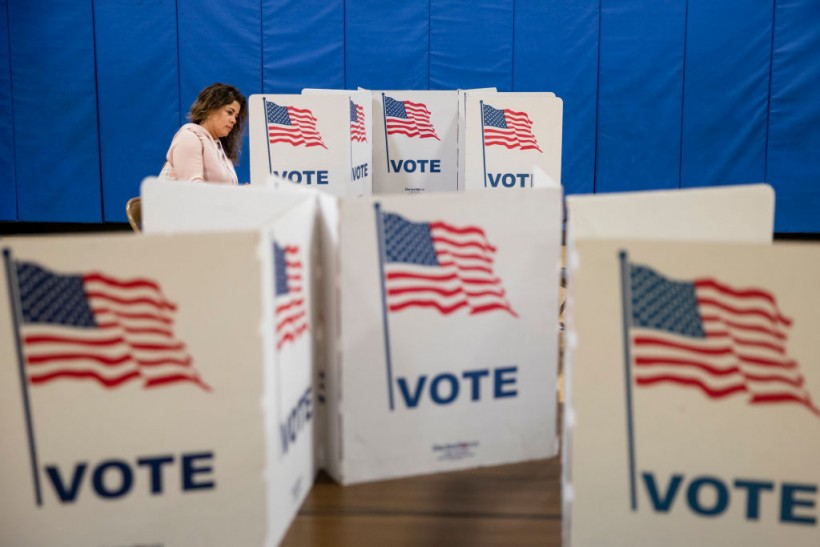
(Photo : Getty Images/Samuel Corum)
HERNDON, VA - MARCH 03: A woman marks down her vote on a ballot for the Democratic presidential primary election at a polling place in Armstrong Elementary School on Super Tuesday, March 3, 2020 in Herndon, Virginia. 1,357 Democratic delegates are at stake as voters cast their ballots in 14 states and American Samoa on what is known as Super Tuesday.
From voting early in-person to mail-in and absentee voting to and voting in person on Election Day, American citizens have multiple options on November 3. If you are slated to vote by mail, Tuesday is the last day a couple of election officials recommend transferring your ballot to ensure it is received in time due to probable postal delays.
Mail-in Voting vs. Absentee Voting
Main Difference
Both voting options require one to fill out an application with the main difference that absentee voting commands your reason to do so and mail-in voting does not.
In the case of mail-in voting, your ballot should be postmarked on or prior to the Presidential Election Day and received by your registrar by noon three days following the election, reported ABC 8 News.
Deadlines for Counting Mail-in Votes and Absentee Ballots
According to election officials, the United States should be prepared not to know who won the highest office in the land on Election Day. They cited a wave of mail-in ballots that a couple of states will require extra time to count.
"We have to prepare for the very strong probability that an election unlike any other we've ever had might take a little longer to accurately count with integrity. More time being taken to report results is not an indication of a problem," stated David Becker, executive director and founder of the nonpartisan Center for Election Innovation & Research, reported The Wall Street Journal.
Also Read: Presidential Election: How to Know the Winner and How to Secure a Win
Forty-four states and the District of Columbia now permit any American to vote absentee. Six states -- Louisiana, Indiana, South Carolina, Mississippi, Tennessee, and Texas necessitate an excuse to vote by mail, and COVID-19 concerns are not an adequate reason.
Voting by mail is used by standard to refer to voting in the five states - Hawaii, Colorado, Washington, Oregon, and Utah - where all elections are established solely by mail and in the states of Nebraska, California, and North Dakota where counties have the choice to choose to initiate elections solely by mail.
In contrast, absentee voting is used to refer to voting by mail in counties or states where the activity is not already used in general. In the majority of states where voting by mail is not universal, absentee voting is available for any reason meaning, voters need not provide a reason for why they are not voting in person at least in the 2020 election, due to the global health crisis.
According to a Facebook post, "Do you know the difference between mail-in ballot vs. absentee ballot? Absentee ballot REQUIRES you to prove who you are! Mail-in DOES NOT!" reported USA Today.
Mail-in voting and absentee voting have regularly been viewed as synonymous in the United States. Historically, absentee ballots were disseminated by mail to voters temporarily not in their homes and no one else was regularly permitted to use this mode of voting.
Related Article: Trump, Biden's Stand on Tax Policies








